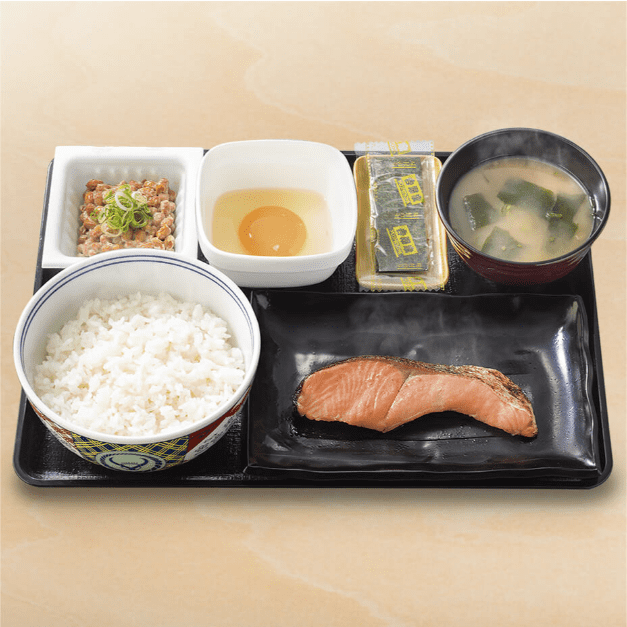

Japanese Secrets to a Long Healthy Life
Why are the Japanese so healthy? Japan is renowned for its exceptional health statistics, including high life expectancy, low rates of obesity, and a low incidence of chronic illnesses. According to a 2017 article by the World Health Organization, the average lifespan in Japan is an impressive 83.7 years, surpassing any other nation’s. In addition, only 4.3% of Japanese adults are classified as obese, the lowest proportion among developed countries. Japan has a lower rate of significant diseases, such as heart disease and diabetes, than most other countries.
So, what makes the Japanese so healthy? Is it their genes, environment, or their lifestyle? While there is no absolute answer to this question, some factors may contribute to the health and longevity of the Japanese people.
Diet
The Japanese diet significantly influences their overall health, primarily comprised of fresh and unprocessed food items with minimal refined ingredients and sugar. This diet is centered around rice, fish, vegetables, seaweed, soy, and fermented foods, which offer a diverse and balanced blend of carbohydrates, protein, fat, fiber, vitamins, minerals, and antioxidants. Numerous studies have linked these foods to a range of health benefits, including:
- Japanese people love rice and eat it at every meal. Also, it is a nutritious food that gives your body energy and helps you feel full. Similarly, it is low in fat and sodium and gluten-free, which may benefit people with celiac disease or gluten intolerance.
- Japanese cuisine is known for its abundance of fresh, delicious fish, a rich protein source, and omega-3 fatty acids. These are necessary for the health of various organs, including the heart, brain, and eyes. In addition, they can reduce inflammation, blood clots, and arrhythmias. Fish also provides essential micronutrients such as vitamin D, iodine, and selenium, which are necessary to boost your immune system, thyroid function, and bone health.
- Vegetables are abundant and diverse in the Japanese diet, often eaten raw, cooked, or pickled. Remarkably, they provide fiber, which aids digestion and lowers cholesterol and blood sugar levels. Likewise, they offer phytochemicals and natural compounds with antioxidant, anti-inflammatory, and anti-cancer effects.
- Seaweed is a type of marine algae used in many cuisines, including Japanese cuisine. It is rich in iodine, essential for producing thyroid hormones that regulate metabolism and growth. Seaweed also contains calcium, magnesium, iron, and other vital minerals in bone, blood, and muscle health. Also, it contains polysaccharides and complex sugars with prebiotic, antiviral, and anti-tumor effects.
- Soy is a legume widely consumed in Japan in the form of tofu, edamame, miso, natto, and soy sauce. It is a nutritious plant-based protein that may promote heart health, blood sugar control, and cancer prevention. Soy also contains isoflavones phytoestrogens that may benefit hormone balance, bone health, and menopausal symptoms.
- Microorganisms like bacteria, yeast, or fungi have transformed fermented foods. These foods include miso, natto, soy sauce, sake, vinegar, and pickles. Significantly, they benefit the gut microbiome, the community of microorganisms in the digestive tract. The gut microbiome affects digestion, immunity, mood, and metabolism. Fermented foods also produce organic acids, enzymes, vitamins, and bioactive compounds that may have anti-inflammatory, anti-diabetic, and anti-cancer effects.
The Japanese diet is not only nutritious but also moderate and mindful. Japanese people tend to eat smaller portions and use smaller plates and bowls. Also, they eat slowly and savor every bite, which helps them feel full and satisfied. Moreover, they follow a principle called “hara hachi bu,” which means to eat until 80% complete and avoid overeating. Similarly, they eat various foods and enjoy seasonal and local produce. Importantly, they eat in a social and pleasant setting and express gratitude and respect for the food and the people who prepared it.
Lifestyle
Another factor that may influence the health of the Japanese is their lifestyle. The Japanese have a culture and a philosophy that promotes physical, mental, and social well-being. Some of the aspects of their lifestyle that may contribute to their health are:
- Physical activity. First, the Japanese are physically active and incorporate exercise into their daily routines. They walk, bike, or take public transportation to work, school, or shopping. Similarly, they enjoy outdoor activities like hiking, gardening, or fishing. They also practice traditional martial arts, such as judo, karate, or kendo, which improve strength, flexibility, and balance. Furthermore, they practice traditional exercises, such as tai chi, qigong, or yoga, which enhance breathing, relaxation, and mindfulness.
- Mental health. Secondly, they are mentally healthy and have a positive and resilient attitude. They have a sense of purpose and meaning in life, which they call “ikigai.” Ikigai is the reason for being, the motivation to wake up in the morning, the passion to pursue one’s goals and dreams. It can be found in one’s work, hobbies, family, friends, or community, which gives a sense of fulfillment and happiness and may lower the risk of depression, anxiety, and suicide.
- Social support. Thirdly, the Japanese are socially connected and have strong and supportive relationships. They have a sense of belonging and identity- the inner circle of family, friends, neighbors, and colleagues who share common values, norms, and expectations. It provides emotional, practical, and financial support and fosters trust, cooperation, and harmony. Also, this support creates a sense of obligation and responsibility, which motivates one to contribute to the welfare of others.
- Longevity. Lastly, Japanese people are longevity-oriented and have respect and reverence for older people. It involves maintaining physical, mental, and social activity and avoiding chronic diseases and disabilities. Also, it consists of passing on wisdom, skills, and traditions to the younger generations and making a difference in the world.
So, why are the Japanese so healthy? These are some of the factors that may explain why the Japanese are so healthy. It is important to note that other factors, such as genetics, environment, and health care, may also contribute to the Japanese people’s good health and long lives. However, the Japanese have a diet and a lifestyle conducive to health and well-being, which anyone can learn and adopt to improve their quality and quantity of life. So, what are you waiting for? Start your journey of discovering the secrets of Japanese health and enjoy the benefits of living like them.
I hope this article is helpful. If you have any questions or comments, feel free to leave them below. Thanks for reading, and I’ll see you at the next one.



